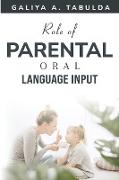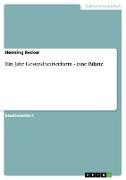Role of Parental Oral Language Input
BücherAngebote / Angebote:
Children's emergent literacy skills have been found to be predictive of concurrent and
subsequent academic achievement. Proponents of a nurture-driven approach to learning posit that
children's linguistic competencies are associated with the quantity and richness of language input
that they receive from primary caregivers. The primary goal of this study was to investigate the
longitudinal relations between the properties of parent language addressed to children when they
were 3 years old and children's emergent literacy skills (vocabulary, grammar, and phonological
awareness) a year later. This study also examined longitudinal continuity of children's emergent
literacy skills and explored how two different types of parent language input (contextualized and
decontextualized) predict children's outcomes.
Participants included 69 parent-child dyads from diverse socio-economic and ethnic backgrounds. Participants were audio-recorded at home during completion of two semi- structured tasks: conversation about past events and free play. Parent and child verbal communication was transcribed, coded and analyzed. About a year later, participating children were assessed using a battery of standardized tests measuring vocabulary, grammatical skill, and phonological awareness skills.
Folgt in ca. 10 Arbeitstagen


